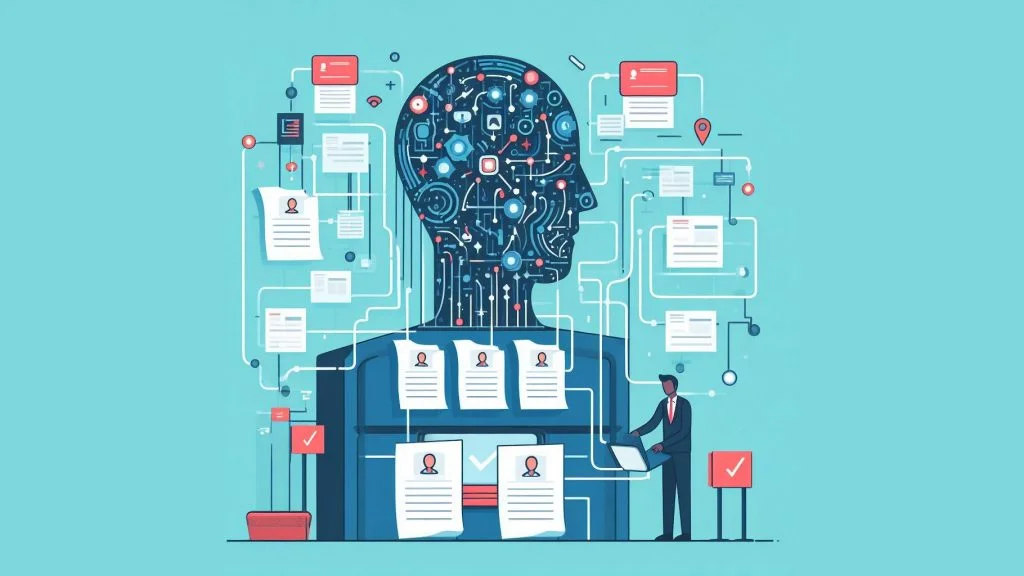
In the dynamic arena of design, a silent revolution unfolds—artificial intelligence, the new protagonist in our creative narrative. From enhancing creativity to automating processes, AI has the potential to revolutionize how we approach design tasks. However, as we embrace the capabilities of AI in design, it becomes imperative to address the ethical considerations associated with its implementation. The integration of AI into the design industry brings forth a myriad of ethical implications. As designers and developers leverage AI to streamline workflows and enhance outcomes, it is crucial to navigate the ethical landscape effectively. This article explores key principles, challenges, and best practices in the ethics of AI design.
Key Principles for Ethical AI Design:
- Transparency and Accountability: Transparency is a cornerstone of ethical AI design. Designers must strive to make AI-driven processes understandable and traceable. Users and stakeholders should have insight into how AI decisions are made, fostering trust and accountability.
- Fairness and Equity: Ensuring fairness and equity in AI design is paramount. Biases can inadvertently seep into algorithms, leading to discriminatory outcomes. Designers must actively work to identify and rectify biases, promoting equitable solutions for all user groups.
- Data Privacy: The ethical use of AI in design demands a commitment to data privacy. Designers must prioritize safeguarding user data, implementing robust security measures, and obtaining informed consent for data usage to prevent privacy breaches.
- Human-Centered Approach: AI should complement, not replace, human creativity. A human-centered approach ensures that AI serves as a tool to enhance human capabilities, fostering collaboration between technology and human ingenuity.
Challenges in Ethical AI Design:

- Bias and Discrimination: One of the significant challenges in AI design is the potential for bias. If AI systems are not adequately trained on diverse datasets, they can perpetuate existing biases, leading to discriminatory outcomes. Addressing this challenge requires constant vigilance, diverse input data, and ongoing monitoring.
- Copyright Issues: The use of AI in design raises concerns about copyright infringement. Designers must be cautious about using copyrighted materials without permission, emphasizing the importance of creating original works and respecting intellectual property rights.
- Human Creativity vs. AI Assistance: Striking the right balance between human creativity and AI assistance is a delicate challenge. While AI can generate ideas and accelerate innovation, it lacks the emotional and empathetic aspects of human creativity. Designers must navigate this balance to ensure AI enhances, rather than hinders, the creative process.
Best Practices for Ethical AI Design:
- Diversifying Input Data and Training: To mitigate biases, it is essential to diversify input data. Designers should collect data from various sources, representing different demographics and perspectives. Continuous training of AI systems helps adapt to evolving ethical standards and ensures ongoing improvement.
- Ensuring Transparency and Accountability: Upholding transparency is critical. Regular audits of AI systems and providing clear explanations of decision-making processes contribute to accountability. Designers should prioritize openness in how AI algorithms operate to avoid unintended consequences.
- Implementing Ethical Guidelines and Frameworks: Embracing ethical guidelines is a proactive approach. Designers and organizations should establish and enforce ethical frameworks, incorporating principles such as transparency, fairness, and a human-centered approach. Compliance with legal requirements and a focus on human rights ensure a holistic ethical foundation.
Real-World Examples:
- Success Stories: Highlighting success stories is essential to showcasing the positive impact of ethical AI in design. Microsoft's Seeing AI app, aiding individuals with visual impairments, and Google's AI-driven design tool, improving efficiency, exemplify how AI can enhance accessibility and effectiveness while adhering to ethical standards.
- Lessons Learned: Examining instances where AI ethics have gone wrong provides valuable lessons. From unintended consequences to privacy concerns, these lessons inform designers about potential pitfalls, fostering a proactive and precautionary approach.
The Future of Ethical AI Design:
- Emerging Technologies and Ethical Implications: As AI technology evolves, new challenges will emerge. Designers must stay informed about discrimination, privacy, unintended consequences, and ethical usage associated with emerging technologies. This foresight allows for anticipatory ethical considerations.
- Industry Trends and Evolving Ethics: The design industry's reliance on AI, machine learning, user data, and immersive technologies necessitates an ongoing commitment to ethical considerations. Transparency, accountability, and adherence to ethical guidelines remain crucial to navigating the dynamic landscape.
- Fostering a Culture of Ethical AI: Cultivating an ethical AI culture involves organizational commitment. Setting ethical guidelines, considering diverse perspectives, and motivating staff to recognize ethical risks contribute to a culture where responsible AI practices are ingrained.
In the journey of integrating AI into design, the ethical dimension is non-negotiable. Designers play a pivotal role in shaping the future of AI by adhering to principles, addressing challenges, and implementing best practices. As technology continues to advance, a commitment to ethical AI design ensures that innovation aligns with human values, fostering a future where AI enhances creativity responsibly.
For a deeper dive into the ethical considerations in AI design, explore this comprehensive article on AI Ethics in Design.

















